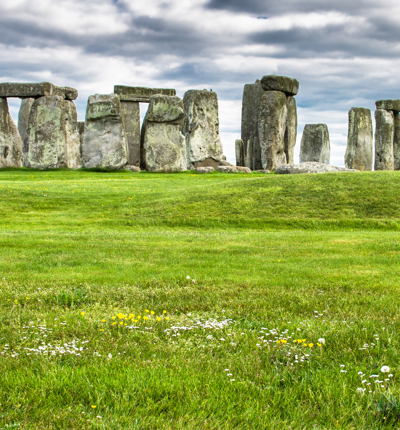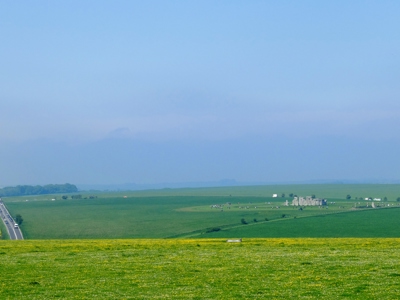
Stonehenge road and tunnel decision unlawful, rules judge
Stonehenge campaigners are celebrating a massive victory after a judge ruled that a decision to allow a dual carriageway, road and tunnel to be built within the ancient World Heritage Site was unlawful.
Posted on 30 July 2021
The judgment effectively quashes development consent for an eight-mile road project which includes two miles of tunnel past Stonehenge and within the World Heritage Site (WHS).
The High Court ruling was delivered today following a judicial review of Transport Secretary Grant Shapps’ decision to allow the project brought by Save Stonehenge World Heritage Site (SSWHS).
Mr Shapps allowed the scheme under the National Planning Policy Statement for National Networks against the advice of a panel of expert planning inspectors who concluded that the scheme would cause significant harm to the integrity of the WHS.
The judge agreed that, in breach of rules in the National Policy Statement for National Networks (NPSNN) and the Planning Act (PA 2008), the Transport Secretary had not properly assessed the risk of harm to each heritage asset within the World Heritage Site
The judge found that he did not have the evidence to conclude that the project would cause “less than substantial harm” to the heritage assets within the WHS, which he deemed fatal to the lawfulness of the decision to grant development consent.
In reaching his judgment, Mr Justice Holgate said the Transport Secretary: “…was not given legally sufficient material to lawfully carry out the ‘heritage’ balancing exercise required by paragraph 5.134 of the NPSNN and the overall balancing exercise required by s.104 of the PA 2008. Those balancing exercises required the impacts on significance of all affected assets to be weighed by the SST” (paragraph 180). The judge went on to say that: “the additional effect of that legal error is that the planning balance was not struck lawfully” (paragraph 284).
The judge further concluded that the Transport Secretary had made an error of law by failing to consider alternatives to the scheme, such as a longer tunnel, which may have been less damaging to the WHS. This was despite, so the judge remarked, the World Heritage Committee raising alternatives as a vitally important issue in relation to a heritage asset of international importance.
In reaching his judgment, Mr Justice Holgate said: “In this case the relative merits of the alternative tunnel options compared to the western cutting and portals were an obviously material consideration which the SST was required to assess. It was irrational not to do so” (paragraph 277).
Crucially for how the Transport Secretary may respond to this judgment, Mr Justice Holgate was clear that, given the panel found that substantial harm would be caused to the Stonehenge WHS, it would be wholly exceptional to treat that level of harm as acceptable (paragraph 264).
Overall, the judge agreed with SSWHS that:
- Harm to each heritage asset within the project should have been assessed individually rather than by way of considering the “historic environment” as a whole and
- He left out of account a mandatory material consideration, specifically the existence of a potentially less damaging alternative in the form of a longer tunnel
John Adams, OBE, SSWHS Director and Acting Chairman of the Stonehenge Alliance, said:
“We could not be more pleased about the outcome of the legal challenge. The Stonehenge Alliance has campaigned from the start for a longer tunnel if a tunnel should be considered necessary. Ideally, such a tunnel would begin and end outside the WHS. But now that we are facing a climate emergency, it is all the more important that this ruling should be a wake-up call for the Government. It should look again at its roads programme and take action to reduce road traffic and eliminate any need to build new and wider roads that threaten the environment as well as our cultural heritage.”
SSWHS was represented in its legal challenge by law firm, Leigh Day, and barristers David Wolfe QC (Matrix chambers) and Victoria Hutton (39 Essex chambers).
Leigh Day solicitor Rowan Smith said:
“This is a huge victory, which means, for now, Stonehenge is safe. The judgment is a clear vindication of our client’s tremendous efforts in campaigning to protect the World Heritage Site. The development consent for this damaging tunnel has been declared unlawful and is now quashed, and the Government will have to go back to the drawing board before a new decision can be made. Meanwhile, one of the country’s most cherished heritage assets cannot be harmed.”



